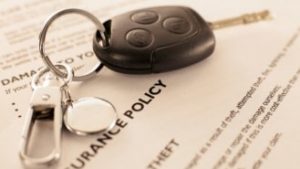 Automobile accidents are the number one cause of liability claims in business. Automobile related claims, especially drivers under the influence of alcohol and youthful operators, are the most devastating to families as well.
Automobile accidents are the number one cause of liability claims in business. Automobile related claims, especially drivers under the influence of alcohol and youthful operators, are the most devastating to families as well.
Every risk manager and fleet manager needs to check drivers’ records frequently.
Quarterly is not too frequent.
Sounds overly intrusive or expensive? Consider that good driving records not only reflect good driving habits; they reflect vigilance in these habits.
Fleet managers must view on-time deliveries and vehicle upkeep as major issues. Risk managers view safety and long-term costs as major metrics.
Quality driver management and the reinforcement of vigilant, excellent driving habits support both sets of goals.
Set driving record standards for moving violations and accidents. Limit drivers to a maximum number of points or moving violations and at fault accidents. Be sold on the idea of intolerance for lesser histories.
Assign some intervention tactic for any moving violation or accident, even not-at-fault. The fleet manager or risk manager can debrief the driver on the circumstances and measures of avoidance which were missed. From this conversation, training can be assigned.
Emphasize the importance of excellent habits and vigilant execution of these habits.
The more touchy subject is checking driving records for spouses or children of employees who may access the vehicle, with or without permission.
In closely held corporations or partnerships, do not hesitate to perform this task. Driving while intoxicated and youthful drivers are the major devastating liability issues for families. Healthcare bankruptcies are not liability claims for these purposes.
Do you want your choice of partner dependent on your current partners’ sixteen year-old child’s driving? For closely held companies, this scenario is real.
The child speeds through a red light and badly injures several people. The claim exceeds the family coverage. Next in line – the business. The debts may be paid by liquidating that partners share, the victims may become the new partners, or a forced sale of stocks may occur.
For a public company, shares of stock or a garnishment of wages may occur for a personal automobile claim; but the company car exposes all the company assets.
Banning family members or unauthorized usage is one answer, but teens will be teens. Check the records, suggest interventions for family members too before bad habits lead to disaster. And it’s always possible to restrict car use to business only with the car left on the business campus; or take away privileges completely to at-risk employees.





